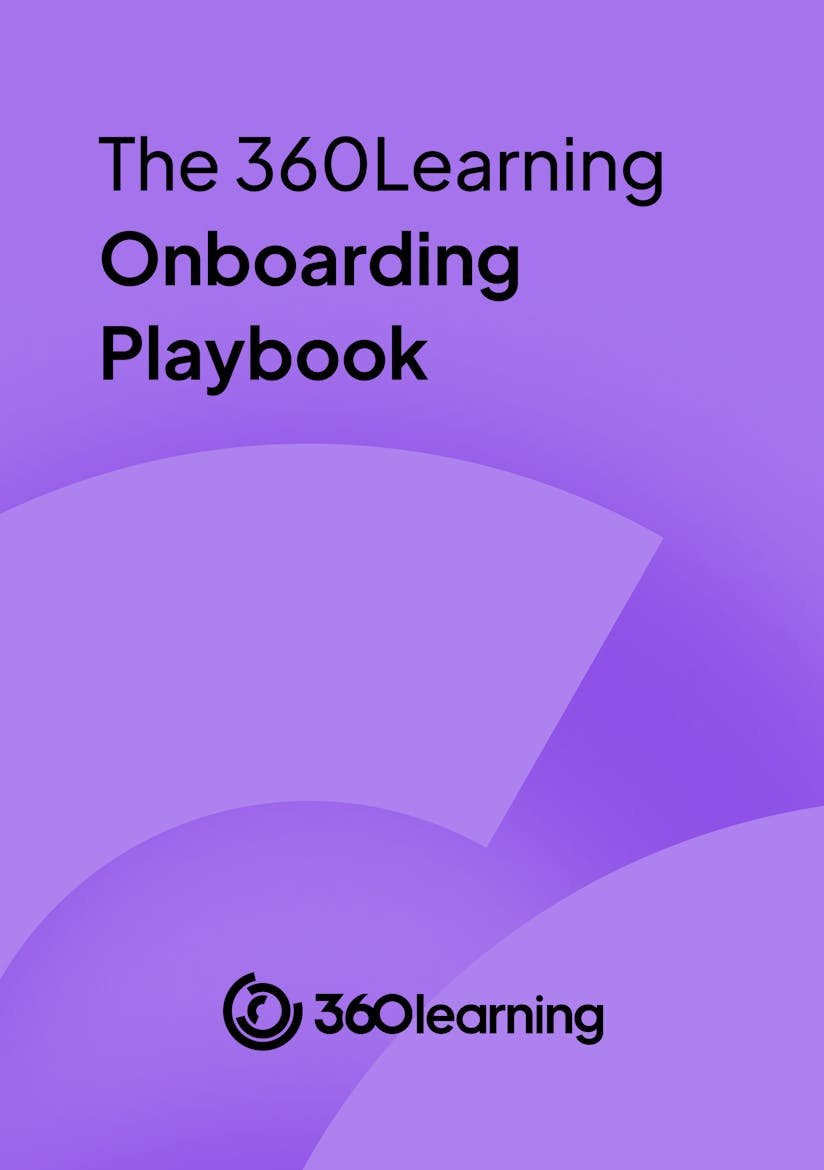
A few years ago, in-person interactions and activities were a key part of the typical onboarding process. A new hire would be shown their desk, given an office tour, and introduced to coworkers over free office snacks. The first day might have also included a welcome lunch or even a friendly game of office ping pong.
But today, with the number of hybrid employees expected to climb to 55% by the end of 2022, creating an engaged and connected company culture among a dispersed workforce is no easy task. Additionally, the Great Resignation is far from over. People continue to quit their jobs en masse, making it harder for companies to attract and retain top talent.
To address these challenges, it's more important than ever for HR and L&D departments to develop an onboarding program that engages their hybrid and remote employees, establishes a clear path to success, and develops a strong connection to the company. Better onboarding leads to employees who perform better and stay at companies longer.

The Onboarding Playbook we swear by
By providing your contact info, you agree to receive communications from 360Learning. You can opt-out at any time. For details, refer to our Privacy Policy.
1. A well-defined onboarding process retains employees
Employee turnover costs an average of 40% of a worker's salary just to find a replacement. The solution is to provide new employees with an onboarding process that has clear expectations and all the tools and resources they need to flourish in their new position, which will encourage them to stay. Organizations with a robust onboarding process improve new hire retention by 82%.
In today's job market, where job openings outnumber quality candidates, it's essential that your new hires feel confident and motivated in their jobs from day one. Otherwise, you risk losing them to a hot job market. Negative onboarding experiences make employees two times more likely to search for new job opportunities. An employee onboarding program that makes new hires feel like part of the team will reduce their chances of leaving.
2. Companies with a great onboarding reputation attract top candidates
An onboarding program that’s educational, engaging, and enjoyable goes a long way in not only retaining talent—it helps your company attract strong candidates, too. What your employees say about your company's onboarding can determine whether top candidates choose you over another employer. If your new employees are impressed, they’ll spread the word.
According to Glassdoor, 84% of job seekers place significant weight on a company's reputation as an employer, and 83% of job seekers read a company's online reviews before accepting a job offer. The best candidates want to be at the best companies that, in return, offer the best career and training paths, and that includes an onboarding process that sets them up for success.
When new hires are onboarded in a disorganized and haphazard manner, they head to social media and job sites like Glassdoor and Indeed to share their experience. The more your organization makes an effort to create an unforgettable first impression with excellent onboarding, the more likely it is to boost its brand reputation and attract top talent.
Related: 5 Onboarding Training Mistakes You Can't Afford to Make
84% of job seekers place significant weight on a company's reputation as an employer, and 83% of job seekers read a company's online reviews before accepting a job offer.
3. Onboarding establishes a clear path of success for new hires
New employees need to know what’s expected of them and clearly understand how they can contribute to the company's success. It's also important for your company to show how you’ll contribute to an employee's career.
Your onboarding should include regular check-ins with managers, frequent goal-setting, and coaching and mentorship opportunities. This will help new hires connect their ambitions with the company's goals and give them clarity about the value of their work.
When employees see the value of their work and understand how their work impacts organizational goals, this gives them a clear sense of direction and purpose. Research has shown that 70% of employees said that their work defines their sense of purpose. Your onboarding process therefore plays an essential role in helping your employees realize the meaning and value of their work.
4. An engaging onboarding process creates an engaged workforce
Investment in training and development through onboarding demonstrates that you’re committed to your new employees’ success. This, in turn, creates engaged employees with a strong connection to the company. In a 2017 study, 53% of HR professionals surveyed reported that employee engagement rises when onboarding is improved.
To turn an otherwise mundane experience into an enjoyable one, you should incorporate interactive quizzes and gamification into your employee onboarding process. When you put new employees through a thoughtful, educational, and fun onboarding program, it creates an engaged workforce that can improve the company’s productivity, culture, and overall organizational success.
In 2018, Deloitte developed an onboarding game for new analysts set in a Zombie apocalypse. In the game, the player (new hire) was tasked with finding a cure to save humanity by completing a series of training activities that focused on important consulting skills and software.
The game was a huge hit with new hires, and Deloitte experienced an annual reduction in analyst onboarding costs. Although the game was designed to be self-paced, some new hires played the game as a team and then participated in discussions and informal knowledge sharing. This kind of blended and collaborative learning creates an engaging employee experience during onboarding and beyond.
53% of HR professionals surveyed reported that employee engagement rises when onboarding is improved.
5. Successful onboarding increases employee productivity
When you leave your new hires alone to figure things out on the job, you're adding barriers that hinder their productivity. Onboarding provides new employees with the tools, resources, and information they need to be successful and productive. In fact, onboarding can increase new hire productivity by over 70%.
Further research from Gartner shows that an effective onboarding process increases an employee's discretionary effort by 20%. The better and more effective the onboarding process is, the faster a new employee can start delivering results.
Additionally, when a new hire starts crushing their goals and contributing to the company's success, they also start to feel more like part of the team and not just "the newbie at work”—which is an important part of building a strong company culture.
6. The onboarding process helps demonstrate and maintain company cultural values
According to BambooHR, new hires who had a positive onboarding experience are 3x more likely to feel a strong commitment to their employer. Building a strong, intentional company culture and sharing it throughout onboarding keeps your organization's values front and center and helps employees develop a sense of connection to your company.
Warby Parker gives its new hires an office map and style guide in their welcome packet, plus a copy of Jack Kerouac's Dharma Bums. The company got its name from two characters in the book. Warby Parker's CEO Dave Gilboa told First Round Review; "We want to make that heritage part of the employee experience from day one. It's something utterly unique to us that will always stand out."
Gestures like this build a bond that fuels an employee's excitement for their new role and ensures that they feel included, accepted, and committed to the company's cultural values.
Steal our playbook: The 360Learning guide to building a world-class onboarding program
Onboarding is an imperative part of the overall employee experience, and you don't want to risk jeopardizing it with a flawed or inefficient process. Yet many companies struggle with developing an engaging onboarding program.
Because training and learning are at the heart of what we do, we've invested significant time and gone through many iterations to perfect an onboarding process that works for us. Let us show you how in the 360Learning Onboarding Playbook.




